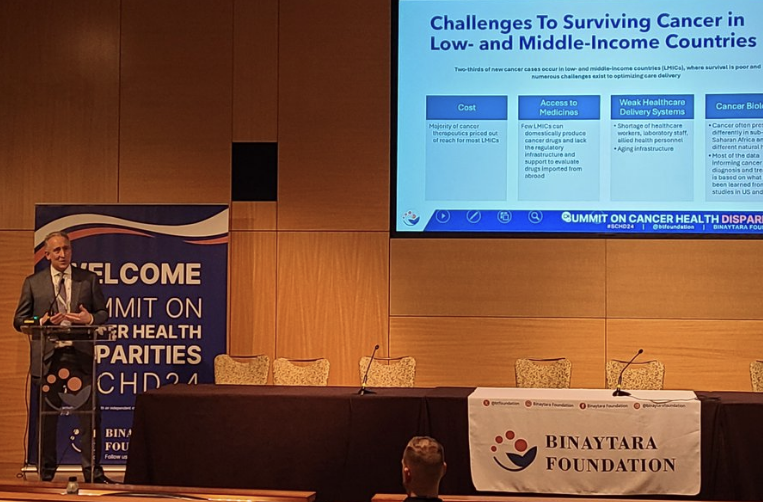Enhancing Innate Immunity for the Prevention and Treatment of Cancer in Low Resource Settings
Presenter: Dr. Corey Casper
Author: Dr. Ronan Hsieh
Cancer is a global health challenge. While recently there have been many advances in the field of oncology treatments, most of the studies were conducted in developed countries. Two-thirds of new cancer cases occur in low- and middle-income countries (LMIC), where medical resource is scarce and patient survival is poor. According to Dr. Casper, treating cancer patients in LMIC comes with many challenges including high cost of cancer medications, low accessibility to medicine due to a poor manufacturing structure, weak healthcare delivery system due to shortages of providers, laboratory staff and allied health personnel, and different cancer biology seen in LMIC patients.
Cancer often presents differently in LMIC patients. However, most of the evidence-based literature informing cancer diagnosis, workup, treatment and prognosis are based on experience in developed countries. To improve our knowledge of cancers in the sub-Saharan area, Dr. Casper’s team studied host and HPV viral genomics and their contribution to cervical cancer, as well as host and EBV viral genomics and their contribution to pediatric lymphoma. He found that cervical cancer in the sub-Saharan area had unique gene expression patterns, epigenetic modifications and HPV integration events, and that pediatric lymphoma in the sub-Saharan area had an increase in aberrant somatic hypermutation which supported a link between EBV and activation-induced cytidine deaminase activity.
To modulate tumor microenvironment in these viral-induced cancers, Dr. Casper designed novel immunotherapy drugs using three cost-effective methods:
- Adjuvant formulations with toll-like receptor ligands to enhance innate immune response
- Delivery vehicles with nanostructured lipid carriers and emulsions to deliver drugs and/or RNA to cell cytoplasm
- RNA platform to deliver tumor antigens for antigen presentation and cytotoxic T cell induction.
These methods have been proven to be inexpensive and effective in preclinical models and early phase clinical trials. As Dr. Casper noted, with the advances in our understanding of the virology, immunology, and genomics of cancer in low-resource settings, our hope is to develop new tools of prevention and treatment that are easily accessible, affordable, potent and durable.
Author Bio:
Dr. Ronan Hsieh is an assistant professor of medicine at the University of Washington and a gastrointestinal oncologist at Fred Hutchinson Cancer Center. His primary research interest is drug development in the field of colorectal cancer and gastroesophageal cancer.
No conflict of interest.





